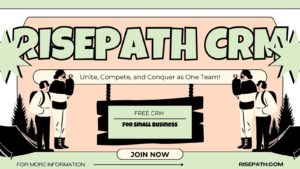CRM, or Customer Relationship Management, tools are software applications designed to help businesses manage their interactions with customers and potential customers. These tools provide a centralized platform for storing and organizing customer data, tracking sales activities, and improving overall customer relationship management. In the solar industry, where customer relationships are crucial for success, CRM tools play a vital role in streamlining business processes and maximizing efficiency.

CRM tools are particularly important in the solar industry due to its unique characteristics. Solar companies often have long sales cycles and complex projects that require careful management. Additionally, the industry is highly competitive, with numerous companies vying for customers’ attention. In such a scenario, having an effective CRM tool can give solar companies a competitive edge by enabling them to better understand their customers’ needs, provide personalized service, and ultimately close more deals.
Benefits of using CRM tools in the solar industry
1. Improved customer relationship management: CRM tools allow solar companies to centralize customer data, making it easier to track interactions, preferences, and purchase history. This information can be used to personalize communication and provide better customer service. By understanding customers’ needs and preferences, solar companies can build stronger relationships and increase customer loyalty.
2. Increased sales and revenue: CRM tools provide sales teams with valuable insights into customer behavior and preferences. This enables them to identify potential leads, prioritize sales activities, and close deals more effectively. By streamlining the sales process and providing sales teams with the necessary tools and information, CRM tools can significantly increase sales and revenue for solar companies.
3. Enhanced project management: Solar projects often involve multiple stakeholders, complex timelines, and various tasks that need to be coordinated. CRM tools can help streamline project management by providing a centralized platform for tracking project progress, assigning tasks, and monitoring deadlines. This ensures that projects are completed on time and within budget, leading to increased customer satisfaction and repeat business.
4. Streamlined business processes: CRM tools automate and streamline various business processes, such as lead management, sales forecasting, and customer service ticketing. This reduces manual work and improves efficiency, allowing solar companies to focus on core activities and deliver better results. By eliminating redundant tasks and improving workflow, CRM tools can save time and resources, ultimately leading to increased profitability.
Top CRM tools for solar companies
1. Salesforce: Salesforce is one of the most popular CRM tools in the market, offering a wide range of features and customization options. It provides comprehensive lead management, sales pipeline management, and project management capabilities. Salesforce also integrates with other software systems, such as accounting and marketing automation software, making it a versatile choice for solar companies.

2. Zoho CRM: Zoho CRM is a user-friendly CRM tool that offers a range of features tailored for small to medium-sized businesses. It provides lead management, sales forecasting, and customer service ticketing functionalities. Zoho CRM also integrates with other Zoho applications, such as Zoho Projects and Zoho Books, making it a seamless solution for solar companies looking for an all-in-one platform.
3. HubSpot CRM: HubSpot CRM is a free CRM tool that offers basic functionalities for lead management, sales pipeline management, and customer service ticketing. It is known for its user-friendly interface and easy integration with other HubSpot marketing automation tools. While it may not have all the advanced features of other CRM tools, HubSpot CRM is a cost-effective option for solar companies starting their CRM journey.
4. Pipedrive: Pipedrive is a CRM tool specifically designed for sales teams. It focuses on visualizing the sales pipeline and providing sales teams with actionable insights to close deals faster. Pipedrive offers lead management, sales forecasting, and sales reporting functionalities. It also integrates with various third-party applications, such as Google Apps and Mailchimp.
5. Insightly: Insightly is a CRM tool that combines customer relationship management with project management capabilities. It offers lead management, sales pipeline management, and project tracking functionalities. Insightly also integrates with popular applications like Google Drive and Dropbox, making it easy to manage documents and collaborate on projects.
Features to look for in a CRM tool for solar companies
| Feature | Description |
|---|---|
| Lead Management | The ability to track and manage leads from initial contact to conversion. |
| Project Management | The ability to manage projects from start to finish, including scheduling, task management, and team collaboration. |
| Customer Service | The ability to provide excellent customer service through various channels, such as email, phone, and chat. |
| Reporting and Analytics | The ability to generate reports and analyze data to make informed business decisions. |
| Integration | The ability to integrate with other tools and software, such as marketing automation and accounting software. |
| Mobile Access | The ability to access the CRM tool on mobile devices, allowing for remote work and flexibility. |
| Customization | The ability to customize the CRM tool to fit the specific needs of the solar company. |
1. Lead management: A good CRM tool should have robust lead management capabilities, allowing solar companies to capture, track, and nurture leads effectively. Look for features such as lead capture forms, lead scoring, and lead nurturing workflows.
2. Sales pipeline management: The ability to visualize and manage the sales pipeline is crucial for solar companies. Look for a CRM tool that provides a clear overview of the sales process, allows you to track deals at different stages, and provides insights into deal probability and revenue forecasting.
3. Project management: Solar projects often involve multiple tasks and stakeholders. A CRM tool with project management capabilities can help streamline project planning, scheduling, resource allocation, and tracking. Look for features such as task management, Gantt charts, and project reporting.

4. Customer service management: Providing excellent customer service is essential for solar companies. Look for a CRM tool that offers customer service ticketing functionalities, allowing you to track and resolve customer issues efficiently. Features such as customer service analytics and customer feedback management can also provide valuable insights for improving customer satisfaction.
5. Integration with other software systems: Solar companies often use various software systems for accounting, marketing automation, and project management. Look for a CRM tool that integrates seamlessly with these systems to avoid data duplication and improve overall efficiency.
How CRM tools can help with lead generation and management
1. Lead capture and tracking: CRM tools provide lead capture forms that can be embedded on websites or landing pages to capture potential leads’ information. These leads are then automatically added to the CRM system, allowing solar companies to track their interactions and preferences.
2. Lead nurturing: CRM tools enable solar companies to create personalized workflows for lead nurturing. These workflows can include automated email campaigns, targeted content, and follow-up reminders, ensuring that leads are engaged and nurtured throughout the sales process.
3. Lead scoring: CRM tools often include lead scoring functionalities, allowing solar companies to prioritize leads based on their likelihood to convert. By assigning scores based on various criteria, such as engagement level and demographic information, sales teams can focus their efforts on leads with the highest potential.
Streamlining sales processes with CRM tools
1. Automated sales processes: CRM tools automate various sales processes, such as lead assignment, follow-up reminders, and deal tracking. This reduces manual work and ensures that sales teams are focused on the most important tasks, leading to increased productivity and efficiency.
2. Sales forecasting: CRM tools provide valuable insights into sales pipelines, allowing solar companies to forecast future revenue accurately. By analyzing historical data and deal probability, sales teams can make informed decisions and set realistic targets.
3. Sales reporting: CRM tools generate detailed reports on sales activities, performance metrics, and revenue. These reports provide visibility into the sales process, enabling management to identify bottlenecks, track progress, and make data-driven decisions.
Enhancing customer service with CRM tools
1. Customer service ticketing: CRM tools offer ticketing functionalities that allow solar companies to track and resolve customer issues efficiently. Tickets can be assigned to specific team members, ensuring that customer inquiries are handled promptly and effectively.
2. Customer service analytics: CRM tools provide analytics on customer service performance, such as response time, resolution rate, and customer satisfaction scores. These insights help solar companies identify areas for improvement and deliver better customer service.
3. Customer feedback management: CRM tools enable solar companies to collect and analyze customer feedback through surveys or feedback forms. This feedback can be used to identify areas of improvement, address customer concerns, and enhance overall customer satisfaction.
Improving project management with CRM tools
1. Project planning and scheduling: CRM tools with project management capabilities allow solar companies to plan and schedule projects effectively. Features such as task management, milestones, and Gantt charts provide a clear overview of project timelines and dependencies.

2. Resource allocation: CRM tools help allocate resources efficiently by providing visibility into team availability and workload. This ensures that projects are staffed appropriately and that resources are utilized optimally.
3. Project tracking and reporting: CRM tools enable solar companies to track project progress, monitor milestones, and generate project reports. This provides visibility into project performance, allowing management to identify potential issues and take corrective actions.
Integrating CRM tools with other software systems
1. Accounting software: Integrating CRM tools with accounting software allows solar companies to streamline financial processes, such as invoicing and payment tracking. This eliminates manual data entry and ensures accurate financial records.
2. Marketing automation software: Integrating CRM tools with marketing automation software enables solar companies to align their marketing and sales efforts. It allows for seamless lead handoff from marketing to sales, ensuring that leads are nurtured effectively throughout the entire customer journey.
3. Project management software: Integrating CRM tools with project management software provides a holistic view of customer interactions and project progress. It allows for better coordination between sales and project teams, ensuring smooth handoff from sales to project implementation.
Factors to consider when choosing a CRM tool for your solar company
1. Cost: Consider the upfront cost, ongoing subscription fees, and any additional costs for customization or integration. Evaluate the return on investment (ROI) based on the expected benefits and increased efficiency.
2. Ease of use: Look for a CRM tool that is user-friendly and intuitive, as it will be used by various team members with different levels of technical expertise. Consider the learning curve and the availability of training resources.
3. Customization options: Evaluate the level of customization offered by the CRM tool to ensure that it can be tailored to your specific business needs. Look for features such as customizable fields, workflows, and reporting.
4. Integration capabilities: Consider the CRM tool’s ability to integrate with other software systems that your solar company uses. This will ensure seamless data flow and avoid duplication of efforts.
5. Customer support: Evaluate the level of customer support provided by the CRM tool vendor. Look for options such as phone support, email support, and online documentation. Consider the vendor’s reputation for responsiveness and willingness to address customer concerns.
The importance of maximizing efficiency with CRM tools in the solar industry
In conclusion, CRM tools play a crucial role in the success of solar companies by improving customer relationship management, increasing sales and revenue, enhancing project management, and streamlining business processes. By choosing the right CRM tool for their specific needs, solar companies can benefit from features such as lead management, sales pipeline management, project management, customer service management, and integration capabilities.
CRM tools help with lead generation and management by providing lead capture and tracking functionalities, lead nurturing workflows, and lead scoring capabilities. They also streamline sales processes through automation, sales forecasting, and sales reporting. Additionally, CRM tools enhance customer service by offering ticketing functionalities, customer service analytics, and customer feedback management.
Furthermore, CRM tools improve project management by facilitating project planning and scheduling, resource allocation, and project tracking and reporting. Integrating CRM tools with other software systems such as accounting software, marketing automation software, and project management software further enhances efficiency and data flow.
When choosing a CRM tool for their solar company, factors such as cost, ease of use, customization options, integration capabilities, and customer support should be considered. By implementing an effective CRM tool and maximizing efficiency in their operations, solar companies can gain a competitive edge, increase customer satisfaction, and achieve long-term success in the industry.

Comments are closed, but trackbacks and pingbacks are open.